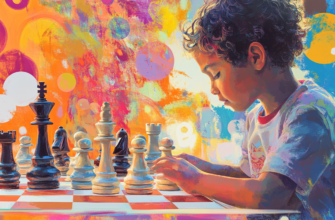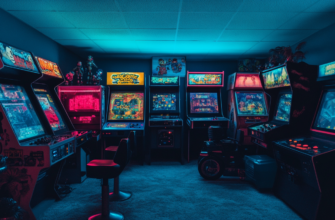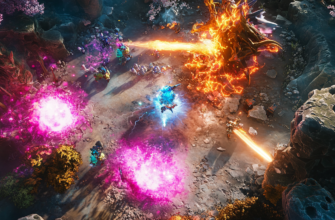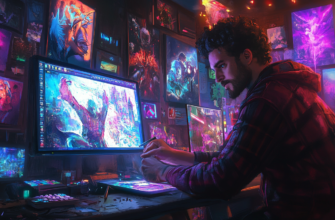- How video games help in social adaptation: Beyond just entertainment
- Why should we care about social adaptation in gaming?
- Understanding key terms
- How video games improve social skills: Steps to level up
- Step 1: Cooperation-based gameplay
- Step 2: Role-playing games as empathy developers
- Step 3: Multiplayer communities as breeding grounds for interpersonal skills
- Ways to engage:
- Step 4: Cognitive improvements in processing social situations
- Practical tips to maximize cognitive benefits:
- Practical tips for social growth through gaming
- Tip 1: Stay in touch with fellow gamers outside the game
- Tip 2: Try games with built-in consequences for social choices
- Tip 3: Moderate competitive toxicity
- Video games and the influence on real-life social skills
- Research and future outlook
- Conclusion: Leveling up your social skills, one game at a time
How video games help in social adaptation: Beyond just entertainment
When most people think of video games, their mind usually goes straight to entertainment. I get it—after all, we’ve all indulged in hours of slaying dragons, speeding through streets, or grinding through quests for that next legendary loot drop. But you know what’s often overlooked? The influence video games have on social adaptation. It might sound surprising, but both single-player and multiplayer games can be excellent tools for developing and improving social skills! Whether you’re a loner trying to break into some good ol’ teamwork or someone just learning the ropes of interactions, you’re in for a ride.
Now, I’m here to help you understand how video game causes relate to social adaptation. I’ll dive into the hidden ways gaming contributes to improving social interactions and mental growth, while giving you clear tips on how to approach this in your own gaming sessions—or if you know someone who can benefit from it.
Why should we care about social adaptation in gaming?
Before diving into the steps and tips, let me quickly explain what social adaptation is. Long story short, it’s the process of learning how to behave, communicate, and interact with others in society. It’s essential for building solid friendships, professional networks, and creating a well-rounded life.
Through games, players (myself included) often practice a wide range of these social skills without even realizing it. Whether it’s through cooperating during missions, role-playing, or even engaging in competitive banter, video games nudge players towards adapting themselves better socially.
Understanding key terms
- Social adaptation: The process of adjusting behavior to fit into social contexts and norms.
- Video game causes: Influences and reasons connected with changes or developments stemming from playing video games.
How video games improve social skills: Steps to level up
Alright, let’s hit it step by step. To make this easier to follow, I’ve broken down the process into a simple guide on how video games lead to improved social adaptation.
Step 1: Cooperation-based gameplay
Ever been thrust into a hardcore cooperative game like “Destiny 2” or “Overwatch”? Same here. There’s nothing like coordinating with a group of strangers or friends to bring down a boss that’s been kicking your squad’s butt for an hour. Games like these help players learn one thing fast—teamwork matters. You’re going to have to communicate, strategize, and sometimes even sacrifice for the greater good.
- Playing cooperative games teaches patience: Players learn that sometimes you need to zip it, listen to a team member with better strategies, and contribute as needed. This translates well into everyday life or work, where interactions with others depend heavily on cooperation and give-and-take.
- Feedback and criticism management: Yup, no one likes a back-seat gamer. But some criticism (when it’s constructive) is surprisingly helpful. Multiplayer games naturally develop that resilience to feedback, and this makes you adapt quicker in social or work scenarios.
Step 2: Role-playing games as empathy developers
Games like “The Witcher 3” and “Mass Effect” are known for forcing players to make ethical decisions. Should you lie to save someone? Sacrifice one life to save many? While at first look, these may seem like mere story elements of a game, players are *constantly* making choices that mimic real-life social dilemmas. These decisions foster emotional intelligence.
- RPGs allow you to perceive social conflicts from multiple perspectives, teaching empathy as you step into various characters’ shoes.
- Dialogue-heavy games force you to consider the emotional weight of conversations, thus honing your emotional and social awareness.
Step 3: Multiplayer communities as breeding grounds for interpersonal skills
Jump into any large-scale MMO like “World of Warcraft,” and you’ll quickly realize this: being part of the community is as important as the game itself. Instant chats, guild memberships, live streams, and forums allow for extended interactions with people who share your interests.
For me, joining a guild was the turning point that made me realize how much gaming communities parallel real-world organizations.
Ways to engage:
- Join a clan, guild, or similar player group: There’s no better way to make connections than by being part of an active gaming group. Engaging adds a layer of responsibility and reciprocity because you’ll form real friendships.
- Use voice chat often, but respectfully: There’s a lot of chaos in multiplayer games, but the most tactical teams know the value of quick, concise communication. Responding to others, listening (actively, not passively), and respecting other voices is paramount to forming solid social habits.
Step 4: Cognitive improvements in processing social situations
Games, even single-player ones, force you to adapt fast in changing environments. Often you’ll find yourself thrown from one social scenario (whether it’s convincing an NPC or aligning with a faction) to another, requiring prompt decisions. The bonus? This strengthens your cognitive flexibility, a superpower in both social settings and intense professional meetings.
Practical tips to maximize cognitive benefits:
- Diversify game genres: Don’t just stick to one type of game. Strategy games sharpen your forecasting abilities, while narrative-driven games enhance empathy.
- Reflect on in-game decisions: Ask yourself during downtime what you could have done differently. This mental habit can fast-track your cognitive flexibility.
Practical tips for social growth through gaming
So you might be wondering, “How do I actually put all this into practice?” Here’s your cheat sheet, my friend. I’ve compiled some of the best tips to ensure your gaming time doubles as social-building time.
Tip 1: Stay in touch with fellow gamers outside the game
- Hop onto Discord or any other communication platform, initiate some after-game convos, and nurture those friendships.
- Check in on your gaming buddies. This not only boosts your social links but keeps you grounded emotionally since you’re investing beyond just a game character persona.
Tip 2: Try games with built-in consequences for social choices
Games like “The Walking Dead” series and “Detroit: Become Human” have moral choices built in that reflect heavily on your decisions with characters. Dive into these for a real simulation of social decision-making.
Tip 3: Moderate competitive toxicity
We’ve all seen it—competitive game chats can get ugly and toxic at times. Remember that practicing kindness and respect even during heated matchups is one of the truest tests of social strength. Be the person who lifts others up, rather than contributes to negativity.
Video games and the influence on real-life social skills
The influence of video games on social adaptation doesn’t stop once you shut down your console or disconnect from the internet. The skills learned—communication, empathy, stress management, and even strategic thinking—have direct, real-world applications. Whether it’s at school, work, or just hanging with your pals, video gaming helps you handle social challenges with more grace.
Research and future outlook
Current research even suggests that video games might eventually be part of official curricula to assist individuals with social anxiety or developmental challenges. While it might seem like something out of a sci-fi movie, think about it: gaming is a low-risk, high-engagement exercise for building social competence!
Conclusion: Leveling up your social skills, one game at a time
To wrap it up, video games have the potential to impact social adaptation in profound ways, cultivating valuable communication, empathy, and cognitive skills. So, next time you’re gaming, remember: it’s more than just entertainment. You’re adapting, connecting, and growing socially without even noticing.
The best part? There’s always a new level to unlock, both in-game and in life.
Start looking at your favorite games as tools for self-improvement, and get your friends (both IRL and in-game) to dive into this social journey too. Feel free to share your gaming experiences, and notice how your social and emotional intelligence is leveling up!

















